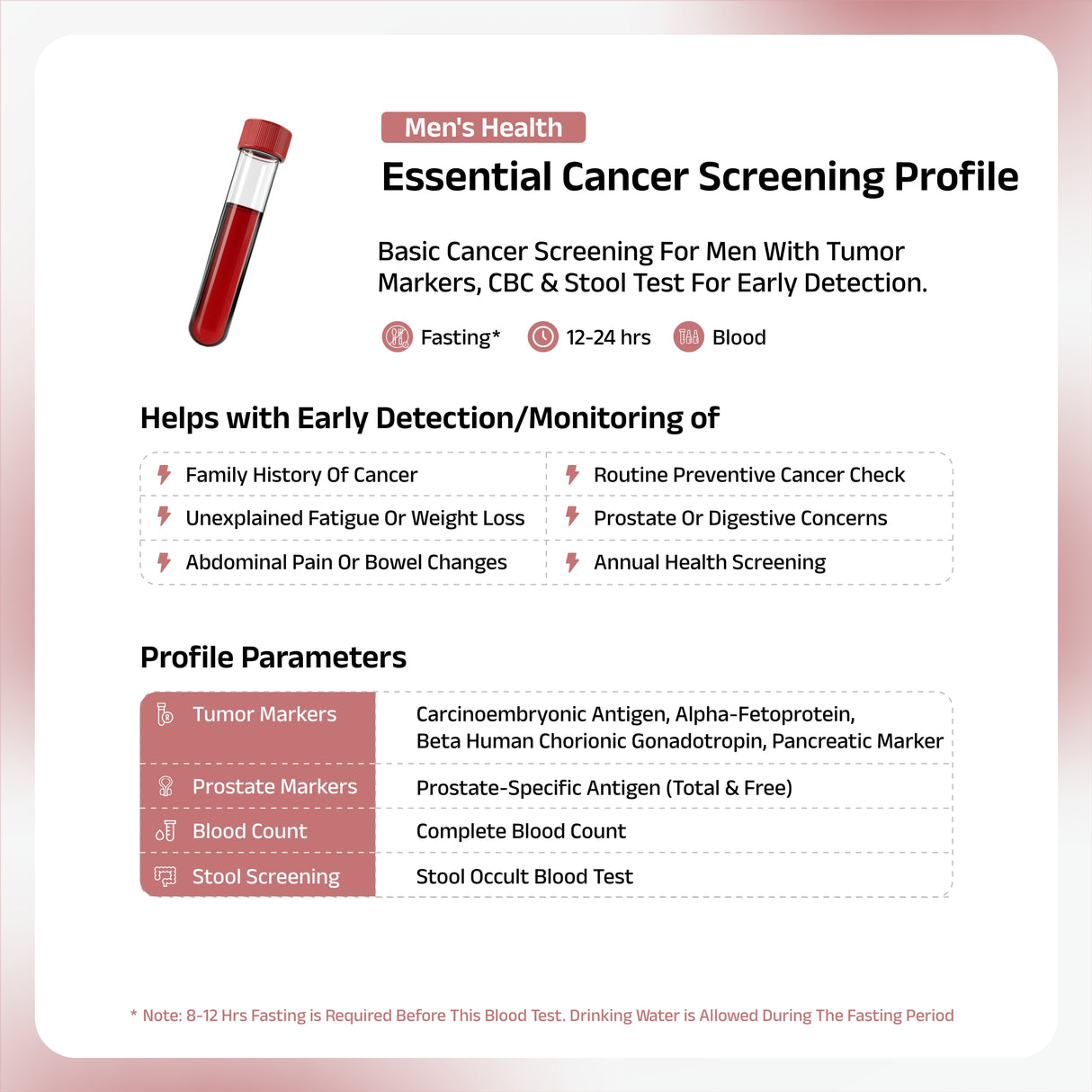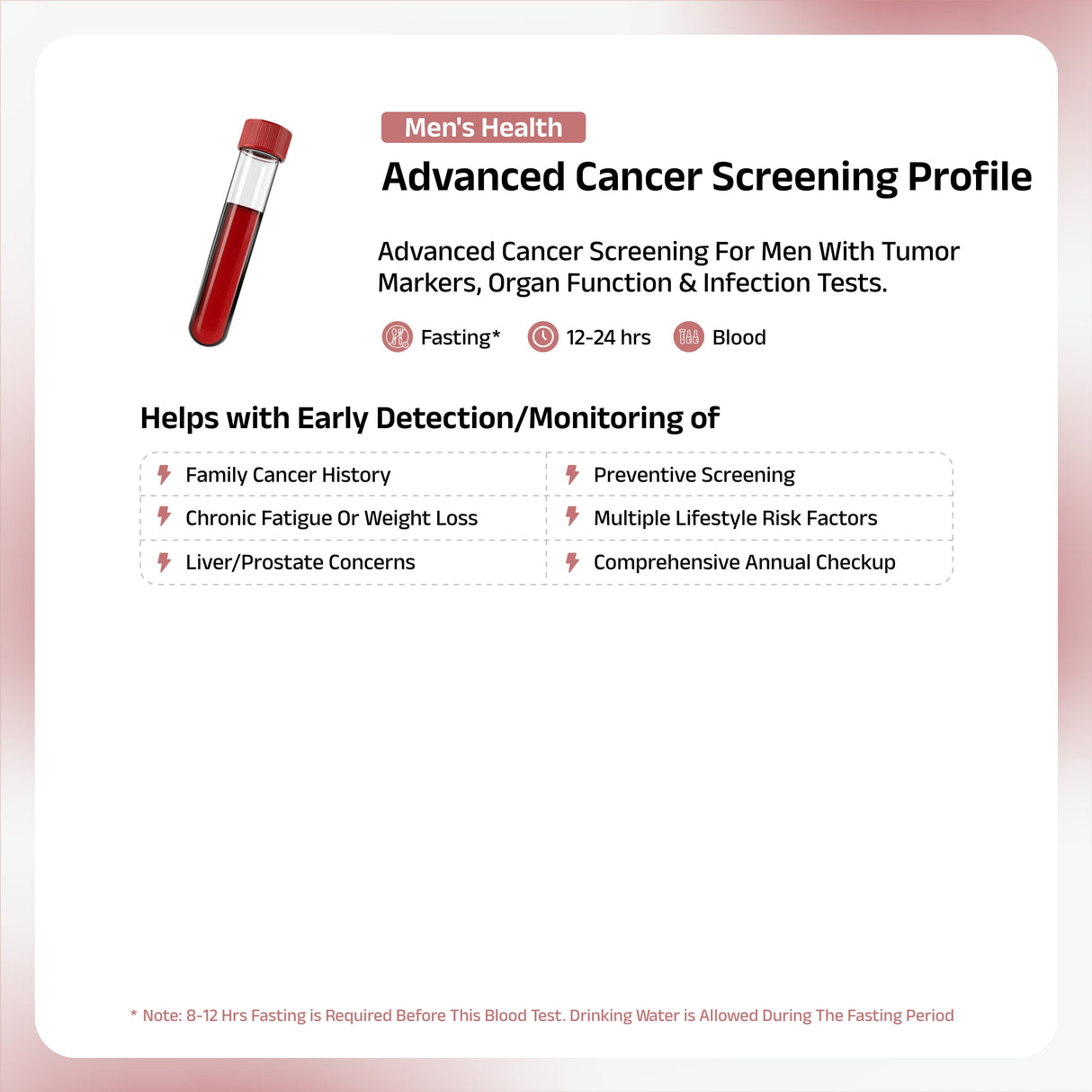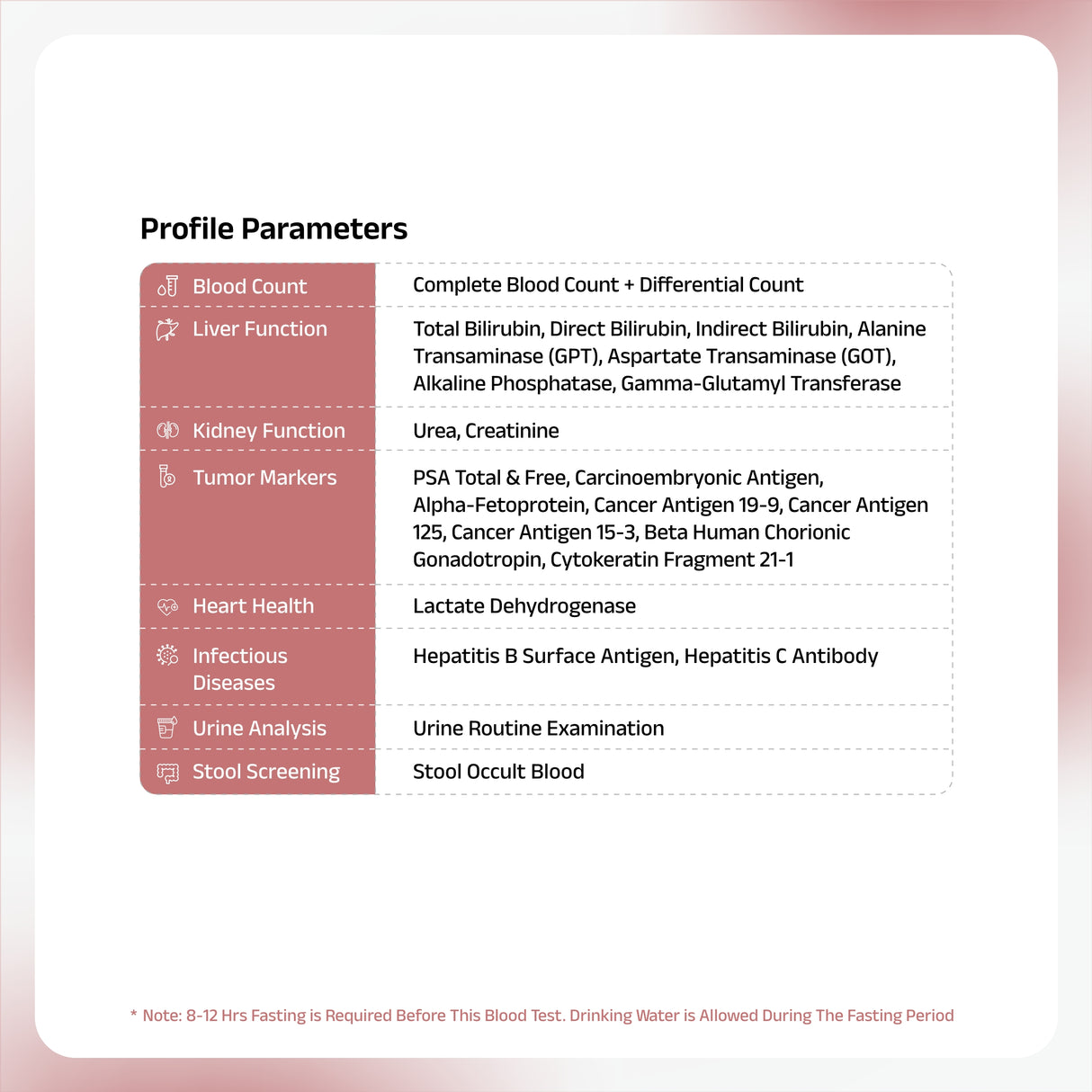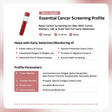Q: What does this test check for?
A: Tumor markers, prostate health, blood conditions, and gastrointestinal bleeding.
Q: Who should consider this test?
A: Men over 40 or anyone with risk factors, family history, or unexplained health symptoms.
Q: Can this test confirm cancer?
A: No, it screens for risk markers. A formal diagnosis requires further clinical evaluation.
Q: How long does the test take?
A: Sample collection takes about 20–30 minutes, with results in 2–3 days.
Q: How often should I take this screening?
A: Annual or bi-annual screenings are recommended, depending on your risk profile and doctor’s advice.
Q: What does this test check for?
A: Tumor markers, prostate health, blood health, liver and kidney function, gastrointestinal health, and infections.
Q: Who should consider this screening?
A: Men over 40, those with family history of cancer, or anyone seeking a preventive health check.
Q: Can this test diagnose cancer?
A: No, it’s a screening for early risk markers. A formal diagnosis requires further medical evaluation.
Q: How long does the test take?
A: Sample collection takes 20–30 minutes, with results ready in 3–4 days.
Q: How often should I repeat this screening?
A: Annually or as advised by your doctor, depending on risk factors.
Q: What does this test check for?
A: Tumor markers, prostate health, blood conditions, and gastrointestinal bleeding.
Q: Who should consider this test?
A: Men over 40 or anyone with risk factors, family history, or unexplained health symptoms.
Q: Can this test confirm cancer?
A: No, it screens for risk markers. A formal diagnosis requires further clinical evaluation.
Q: How long does the test take?
A: Sample collection takes about 20–30 minutes, with results in 2–3 days.
Q: How often should I take this screening?
A: Annual or bi-annual screenings are recommended, depending on your risk profile and doctor’s advice.




















